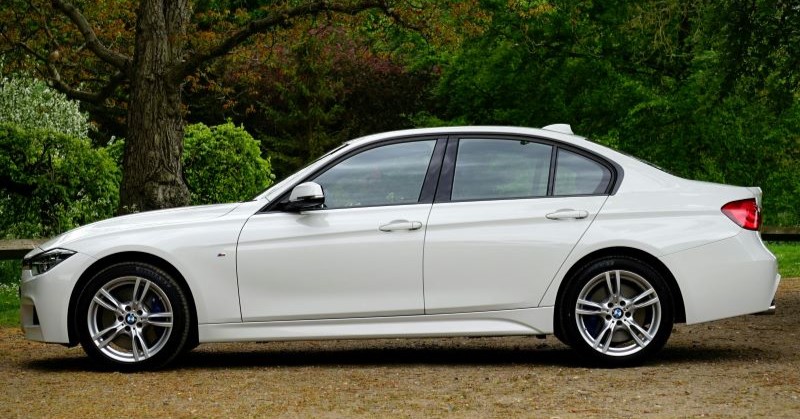Sponsored Content.
Come on: Donegal is lovely, but it’s wet. Extremely wet. We love the rolling hills, twisting coastal roads, and that soothing Atlantic breeze which smells of the sea, but on your vehicle, the same breeze is a killer. Especially on your brakes.
If you’ve ever taken your car in for a service and been told your brake disks are pitted, corroded, or just plain knackered, even though they were fine the last time, you’re not alone. It’s one of the most common complaints in Donegal garages, and there’s a perfectly good reason for it: Our weather.
The trouble with disks in Donegal
Brake disks are the metal plates your brake pads clamp onto to stop your car. They’re usually made from cast iron, which is strong and cheap, but rusts like mad when it’s wet and salty. Sound familiar? Donegal gets over 1,500 mm of rainfall per year, most of it generously spread across all four seasons. Combine that with the salty Atlantic air, especially if you’re anywhere near Bundoran, Dungloe, or the Fanad coast, and you’ve got the perfect recipe for corrosion.
Even if you only drive into Letterkenny for the weekly shop and don’t have a seafront location nearby, the dampness sticks. It seeps into every crevice under your vehicle, and brake disks are effectively sitting targets.
How quickly can disks rust?
Here’s the scary news: Brake disks may start to develop surface rust as early as 12 hours after you park in rainy weather. If your car sits over daily in your driveway, it’s likely already rusting away next morning-even though you can’t see it.
That light rust isn’t bad in itself. In fact, driving under normal circumstances will wear most of it off your brakes. The issue arises when vehicles are driven sparingly, or only short distances. The disks never actually dry or become clean, and eventually the rust penetrates deeper, resulting in pitting (those annoying grooves and craters mechanics talk about when you ask them what went wrong).
It’s especially bad if all you ever do is cruise around town. Low-speed stopping doesn’t get things hot enough to cause the water to evaporate. And if you roll them up again with wet disks? Bingo, rusted.
Donegal drivers and the Audi A4 B8: A particular aggravation
Now, if you’re driving an Audi A4 B8 (2008–2015), and a fair few folks around Donegal do, you may have noticed your brake disks don’t seem to last as long as they should.
Audi’s B8 generation A4s are solid motors, well-suited to Irish roads, but the brake disks for Audi A4 B8 are notorious for rust issues in wet climates. The caliper design tends to trap moisture against the disk, especially at the inner edge, where corrosion often starts first. Add in Donegal’s dampness and salt air, and you’ve got a match made in mechanic heaven. Many of the local garages have had A4 B8 owners needing new rear disks at 18,000–25,000 km, much less than is normal on similar vehicles in drier climates.
What can you do to prevent it?
Right, on with the nitty-gritty. You can’t do anything about Donegal’s climate (if only), but you can do something to protect your disks.
Drive regularly, and far enough
Regular short drives are brake disk killers. Try to get your car out for a good stretch at least weekly, 20–30 minutes on the N56 or out past Gweedore. Get the brakes to heat up, dry out, and strip off surface rust.
Don’t park with wet brakes
If you have driven in heavy rain or through puddles, don’t park right away if you can help it. Drive around the block to dry out the disks before turning off the engine.
Use upgraded parts
If you own an Audi A4 B8 or another car that rusts, you may want to treat yourself to coated brake disks. Manufacturers such as Brembo and ATE make anti-corrosion disks coated for protection that will endure longer when used under challenging conditions. They cost extra, but might repay you in the long term.
Clean and check regularly
Take a visual check every couple of weeks to catch rust early. No need to be a mechanic, just glance through the wheels. If the disk is uneven or rough, it’s probably time for a tune-up.
Use the brakes
Unconventional advice, I admit, but bear with me. If you’re crawling downhill in traffic or sliding slowly down a hill, you’ll be tempted to coast or engine brake to save wear. But be aware, occasional brake use keeps the disks clean. Some is better than nothing.
The bottom line
Donegal brake disk rust is not bad luck, it’s not coincidence, either. It’s just the result of our surroundings. Salty sea air, high moisture, and frequent rain form a corrosive storm. And whereas it may not be avoidable all the time, there are a few things you can do to make your brakes last longer.
Whether you’re cruising through the Bluestack Mountains or fighting off a rainy Letterkenny morning, healthy disks equal safer driving, and smaller surprise garage expenses.
And if you’re behind the wheel of an Audi A4 B8? Keep an eye on those rear disks very closely. Lovely cars, but they don’t get on with the weather here any better than the rest of us do.








